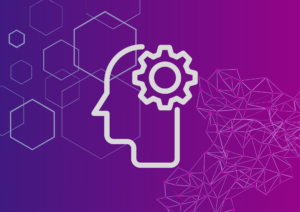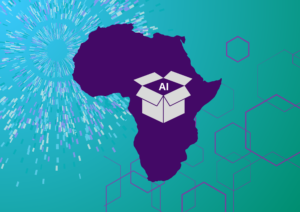Mariana Rozo-Paz, Research Assistant and Carolina Rossini, Director, Partnerships & Research, Datasphere Initiative
Since the international agreement on the Sustainable Development Goals (SDGs), the international community has understood that data is a crucial enabling element for their achievement. Under this understanding, on September 13, 2022, the United Nations’ General Assembly (UNGA) opened its seventy-seventh session under the theme “A watershed moment: transformative solutions to interlocking changes”. The Datasphere Initiative joined partners in various parallel events to further knowledge and initiatives on data. This blog shares some examples and insights from the events that took place highlighting data’s prevalence as a core infrastructure for the digital economy, and an important source of development and well-being for all.
The 2022 UNGA’s theme stemmed from recognizing that the world is at “a critical moment due to complex and interconnected crises, such as the COVID-19 pandemic, the war in Ukraine, unprecedented humanitarian challenges, an urgent need to fight against climate change and threats to the global economy” (UN, 2022), and invited its members to seek joint solutions to the ongoing crises to build a more sustainable and resilient world.
The importance of data governance for SDG implementation
Countries’ and international leaders – in plenary sessions and hundreds of parallel events around New York City – discussed the challenges to implement the SDGs. By calling for a reform of the global financial system, UN Secretary General, Antonio Guterres, stressed the importance of spurring stronger commitments to ensure the successful implementation of the SDGs by 2030.
As set out in the UN’s Our Common Agenda, launched in 2021, the SDGs need to be rescued through stronger international cooperation and reinvigorated multilateralism. Since 2021, this initiative of the Secretary General has encouraged effective global SDG action, which implies policy, governance and economic systems’ transformation.
Data governance is a noted fundamental governance transformation needed to advance SDG implementation. In fact, one of the highlights from this year’s UNGA was the leaders’ roundtable on climate action. There is an urgent need to drive transparent and inclusive actions to tackle climate change through multilateral collaboration. Governing data for climate action does not only include statistical data to support planning, implementing, and monitoring climate change mitigation initiatives, but also governance of data at the product and services levels for the development of innovations that decrease emissions. The use of data is also crucial to support advocacy and outreach to governmental and non-governmental actors, and engage those in climate action.
Ensuring that data represents minorities
Another highlight from the UNGA was the emphasis on gender and minorities. Not only was there a platform for women leaders, but also National or Ethnic, Religious and Linguistic minorities were featured through the commemoration of the thirtieth anniversary of the adoption of the 1992 Declaration on the Rights of Persons Belonging to National or Ethnic, Religious and Linguistic Minorities. People with disabilities were also part of the discussion, and the UNGA agreed that the world was falling short to protect minority rights.
The relevance drawn to women, minorities and people with disabilities calls leaders to action. In particular, action can take the form of equitable and inclusive data governance models that ensure that gender and other horizontal approaches are employed to the collection and use of data. The key question to answer is: how can we ensure that we are all represented by data and that policies derived by data are relevant to all?
What these new governance models also mean is that, for instance, statistical data – and the way it is collected – should also be rethought. Guaranteeing that people are all well-represented by data is a challenge of increasing importance. If people are not represented by the data, then policies – and the digital and data economy in particular – will keep excluding them. This statement was also reinforced during the launch of the Data Values Campaign and Manifesto by the Global Partnership for Sustainable Development Data – to which the Datasphere Initiative contributed as peer-reviewers of their report. The #DataValues Manifesto calls for change in how we design, collect, fund, manage, and use data. Speakers at the launch called on organizations, governments, and people to act now and together to create this change.
The urgent need for new data governance models
The demand for new data governance models, which are urgently needed, was also a topic discussed during the Digital Cooperation Organization parallel meeting to the UNGA, and under the flag of #DigitalFuture4All. During that event, high level policy makers from the MENA region, various UN agencies, companies and some non-profits discussed the role of data as a core infrastructure of the digital society, and how a more holistic data governance can and should support inclusivity and well-being for all.
Effective implementation of the SDGs will require representative and improved data management and use across the private and public sector. How the international community collaborates to improve data governance will no doubt impact development and our ability to deal with global crises. Events around the UNGA gave way to some important reflections on how data can be leveraged to meet the ambitious 2030 agenda and all stakeholders should play a role in responsibly unlocking its value in the years to come.
Advancing the research agenda and identification of solutions between data and SDGs is core to the mission of the Datasphere Initiative, particularly in the context of our planned outputs for our second cohort of fellows in the Datasphere Fellowship 2022-23, who start this month.
To get to know some of the relevant discussions lead by our first cohort of fellows, the Datasphere Initiative will be hosting the event “Think global, act responsibly“, which will provide an opportunity to the 2021-22 fellows to present the results of their research related to advancing the SDGs and using data for good. Register to attend the event!






